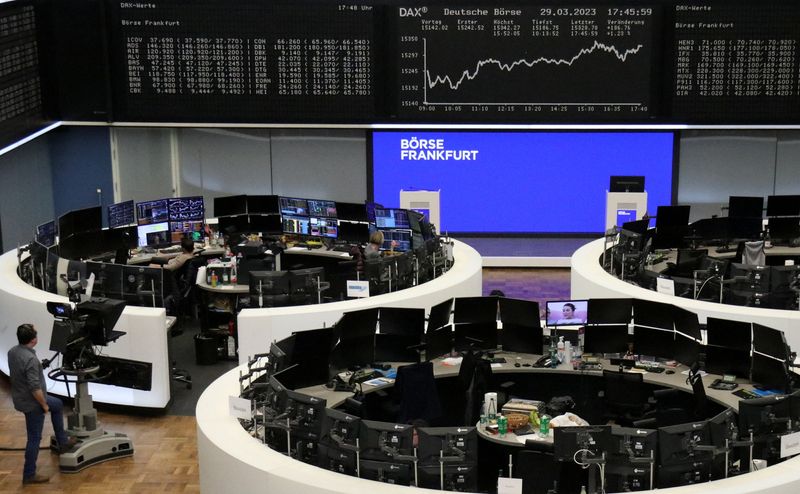A look at the day ahead in European and global markets from Tom Westbrook
A lot of investors went in to this year expecting the U.S. interest rate outlook to reveal itself, and for clarity on that front to inform pricing for pretty much everything else.
Three months have gone by and it hasn't quite worked out that way.
Pulling in one direction is a bank collapse that set interest rate expectations diving. Pulling in the other is persistently high inflation.
After a month of wild swings for bonds and interest rate futures, rate expectations are settling around a peak in the Fed funds rate near 5% and then steady downhill from there.
Traders reckon policymakers will need to be careful while the effects of fragile bank confidence roll through the economy.
The outlook remains far from clear while the sentiment on banks and lending is so delicate. One piece of clarity is the contrast with Europe, where markets have priced in another 50 basis points in hikes this year and inflation is running hot.
Euro zone inflation data later in the day can reinforce that, if it echoes stronger-than-expected German figures published on Thursday. The euro is up 1.8% on the quarter. Sterling is up 2.5%.
Nerves on banks and lower U.S. Treasury yields have delivered investors into the arms of profitable, big cap technology companies. The Nasdaq, is eying its best quarter in more than two years.
Elsewhere, there are positive signs - China's manufacturing activity expanded again in March, albeit at a slowing pace, and there are growing signs of an end to the regulatory storm there.
E-commerce firm JD (NASDAQ:JD).Com is planning to spin off its property and industrial units, sources told Reuters, following in the footsteps of similar plans at rival Alibaba (NYSE:BABA), which markets have taken as a broadly encouraging signal.
On the flipside, Japan's government said on Friday it plans to restrict exports of 23 types of semiconductor manufacturing equipment, aligning its technology trade controls with a U.S. push to curb China's ability to make advanced chips.
The second quarter may prove as difficult to navigate as the first.

Key developments that could influence markets on Friday:
Economics: Euro zone inflation, U.S. core PCE